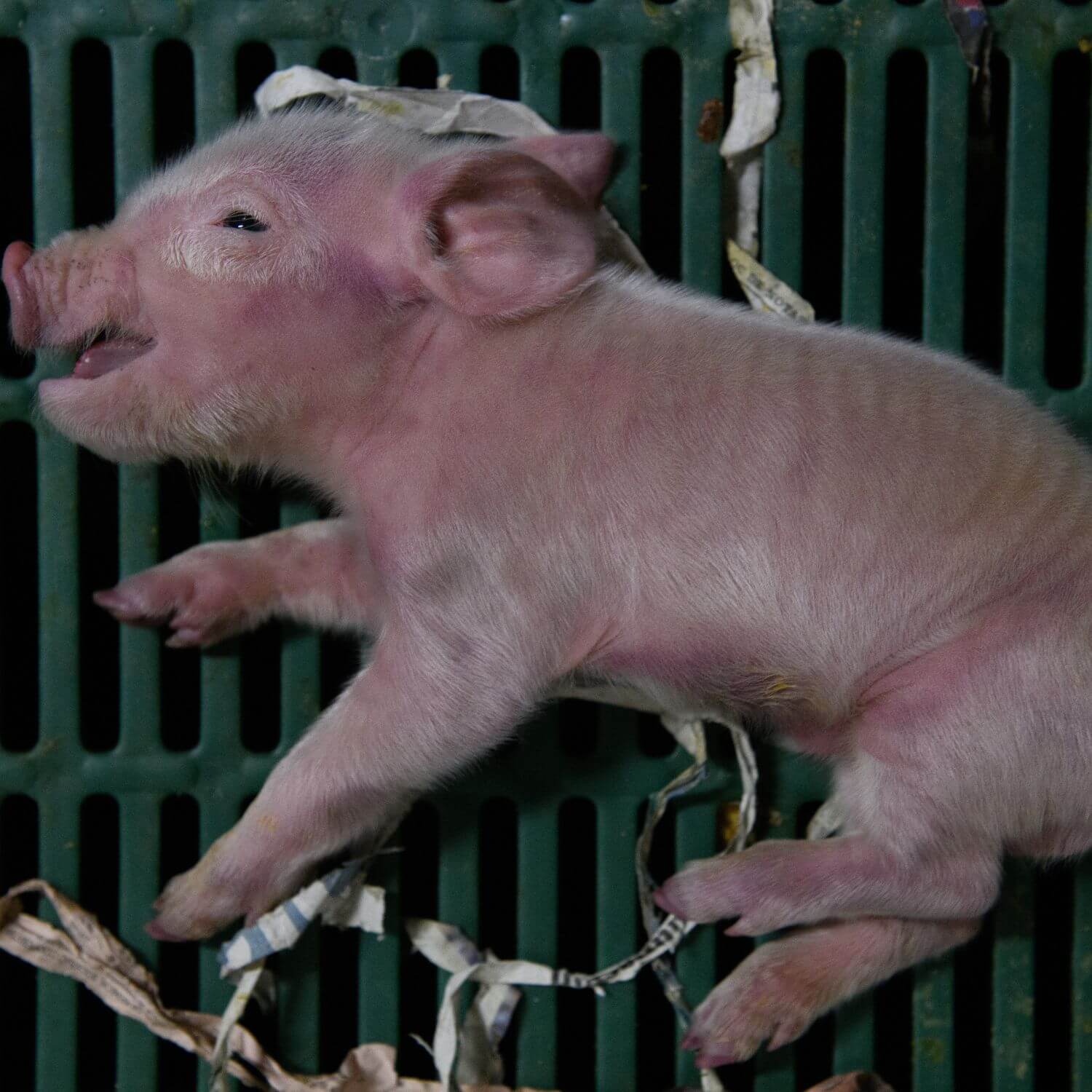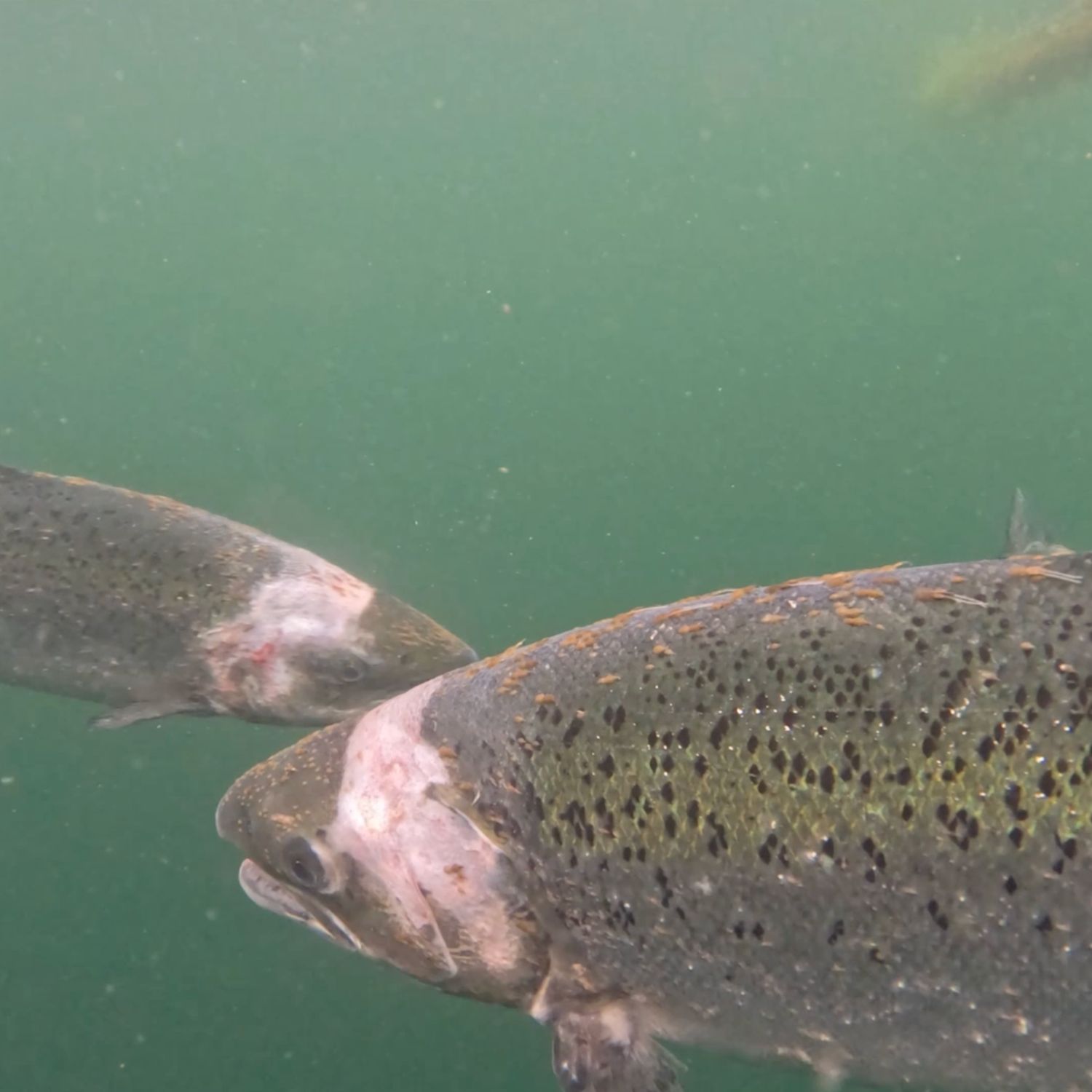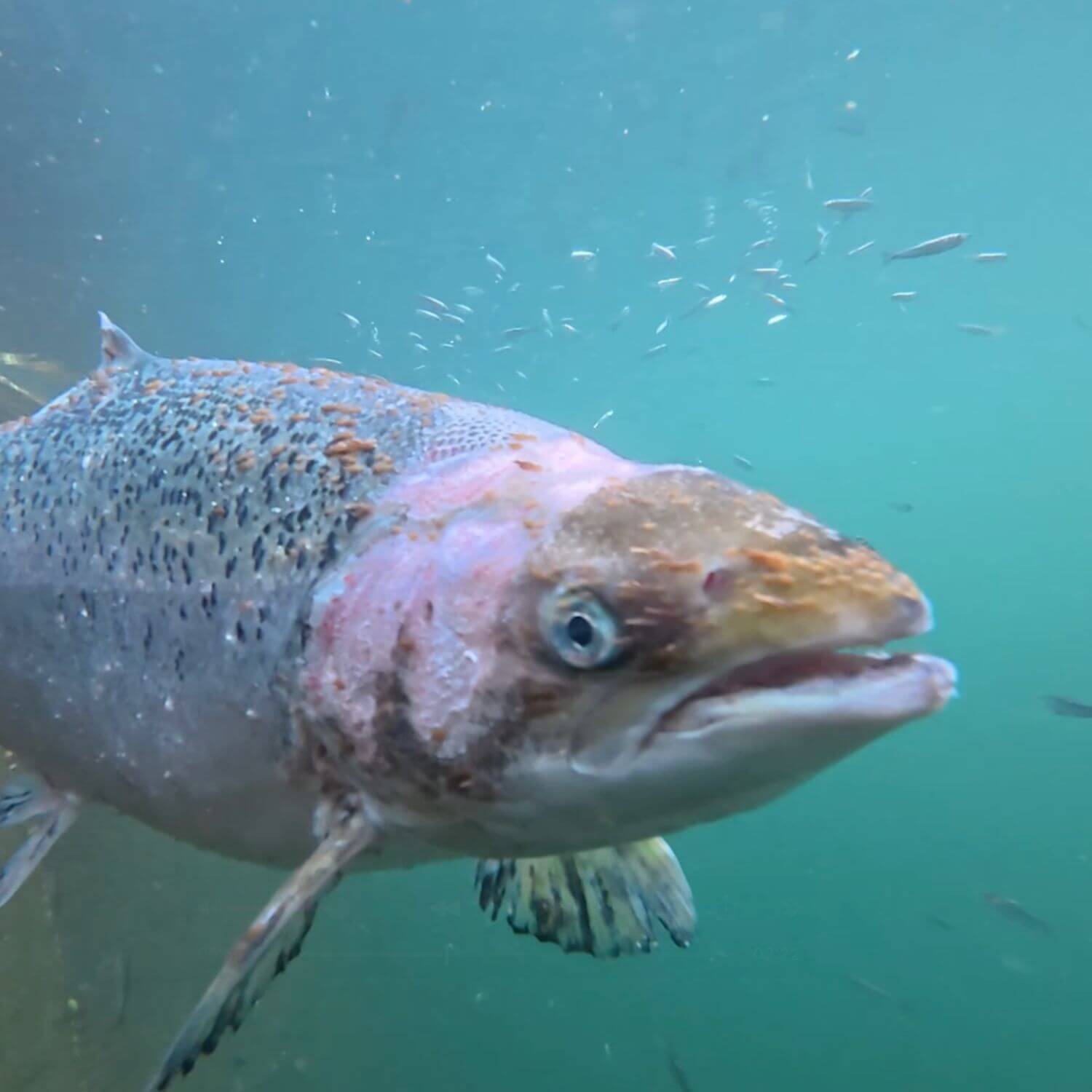Controversial super-sized salmon farm given green light by Grimsby Planning Committee, in a move that experts deem “reckless”
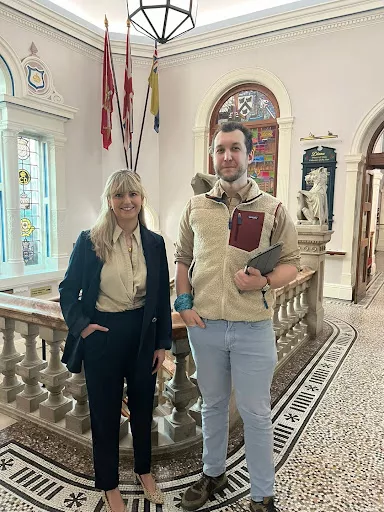
In a determined effort to safeguard the future of millions of salmon, Abigail Penny, Director of Animal Equality UK, and esteemed fish expert Mark Borthwick embarked on an arduous ten-hour journey to the Grimsby’s Planning Committee meeting.
The gathering was attended by the Director of Aquacultured Seafood, the firm behind the original proposal, along with concerned objectors.
Abigail and Mark seized the opportunity to urgently articulate their concerns regarding the proposed development of one of the world’s largest salmon farming facilities. Just as the recommendation for approval was about to receive the green light for the next phase of development, objectors were granted a mere five minutes in total to persuade the Councillors to reject the proposal. Abigail, Mark, and a local resident shared the time, taking under two minutes each to voice their objections.
Abigail passionately cautioned the Councillors about the colossal risks associated with salmon mortality in such an artificial environment, emphasising the irrevocable challenges these farms pose to our natural species and local communities. She also highlighted the strain that a facility of this magnitude would place on our planet’s already dwindling resources.
With unwavering determination, she advocated for the lives of millions of fish, declaring:
Every one of you will set a precedent and make history during this meeting. You must choose to sit on the right side of history. If you decide to give the green light, this will be one of the most enormous fish farms on the planet. And I say, without an ounce of doubt: it will give rise to untold death and destruction on your doorsteps.
Mark Borthwick, a Doctoral Fellow and former Head of Research at the Aquatic Life Institute, reinforced Abigail’s arguments. He critically assessed the industry’s “wildly optimistic view” of the farm’s operations, highlighting discrepancies in the claimed efficiency. He cautioned that the numbers in the firm’s proposal simply didn’t add up, as the farm would require more water, generate more waste, face increased disease challenges, and produce fewer fish flesh than promised.
Describing this application as “one of the most critical planning applications we’ve had in our time,” Councillors expressed concerns about the facility’s size, environmental impact, and location. They particularly questioned the energy consumption required to sustain the site, as well as the predicted waste output.
Councillor Holland, an independent Councillor, noted the lack of a track record for Aquacultured Seafood, labelling it as a “start-up business.” He emphasised the Committee’s responsibility to address residents’ concerns and commission an Environmental Impact Assessment (EIA).
Councillor Beasant, a Liberal Democrat, expressed concern about the lack of an EIA and emphasised the importance of environmental considerations, stating, “I’m a keen environmentalist and I’ve got some grave concerns about this. We cannot have a legacy like this for 80 jobs when we don’t know how stable those jobs are.”
Abigail echoed this sentiment, acknowledging the need for local jobs but raising the crucial question, “jobs at what cost?”
While the Chair of the Committee acknowledged that the Council lacked expertise in this area, a vote was nonetheless enforced. Four Councillors favoured delaying the decision and commissioning an Environmental Impact Assessment, while the remaining seven voted in favour of the proposed fish factory.
The anticipated scale of the facility is staggering, estimated to produce as much effluent as 400,000 humans – a figure four and a half times the population of Grimsby. The energy demands of the farm could power 3,200 houses, and it’s worth noting that a single salmon fillet consumes the same amount of drinking water as one person requires for an entire year.
You can listen to the speeches made by Abigail and Mark during the meeting, by clicking the play button below:
What Does This Mean For Farmed Salmon?
As the Planning Committee is not required to consider animal ethics in its decision, Abigail and Mark sought to protect fish most effectively by focusing on the environmental arguments. However, the animal protection concerns about this facility should be reason enough for the Council not to give the go ahead.
Scientists recognise that fish, just like other farmed animals, experience pleasure and pain.
In the wild, these majestic creatures undertake migrations of nearly 4,000 kilometres, a journey nearly as long as travelling from the UK all the way to Egypt. Keeping them in these cramped conditions is just cruel.
We know that a litany of challenges already plagues salmon farms.
Fish are given very few legal protections. There are currently no species-specific requirements in the law as to how fish should be transported, stunned or killed.
Combined with low levels of legal enforcement, this means fish are at serious risk of being treated appallingly in their final moments of life.
Our undercover investigations have documented a number of concerning incidents, including failure to stun fish properly, fish being violently thrown and fish left to suffocate.
Even before slaughter, these fish have miserable lives. Many are victims of harsh handling, parasitic sea lice, severe weather conditions, algal blooms, predation or even cannibalism. It is not surprising that, tragically, one in four salmon die before slaughter.
Given the plethora of challenges that already plague salmon farms, the industry should at the very minimum prioritise addressing these issues within their current operations. Authorities should certainly not be allowing them to expand – these problems will only multiply and the scale of suffering will be monumental.
Try Plant-Based
Although the Council has given the green light to this death trap, our commitment to safeguarding the lives of these salmon remains unwavering. Notably, our objections have already made a significant impact in the press, with coverage in The Grocer and Grimsby Live. But before the first spade breaks the soil, we have many plans in motion, and we can’t do it without your support.
The best thing you can do to help is to keep salmon flesh and all animal products off your plate.
Every year approximately 100 million fish are killed by the UK fish farming industry, if we take into account the fish that make it to slaughter and the ones who die before.
The UK aquaculture industry is desperate to grow its operations and profits – we cannot allow it. As consumers, we hold the power to stop this.
It’s never been easier to make compassionate choices with our diets, so why not start your plant-based journey today?
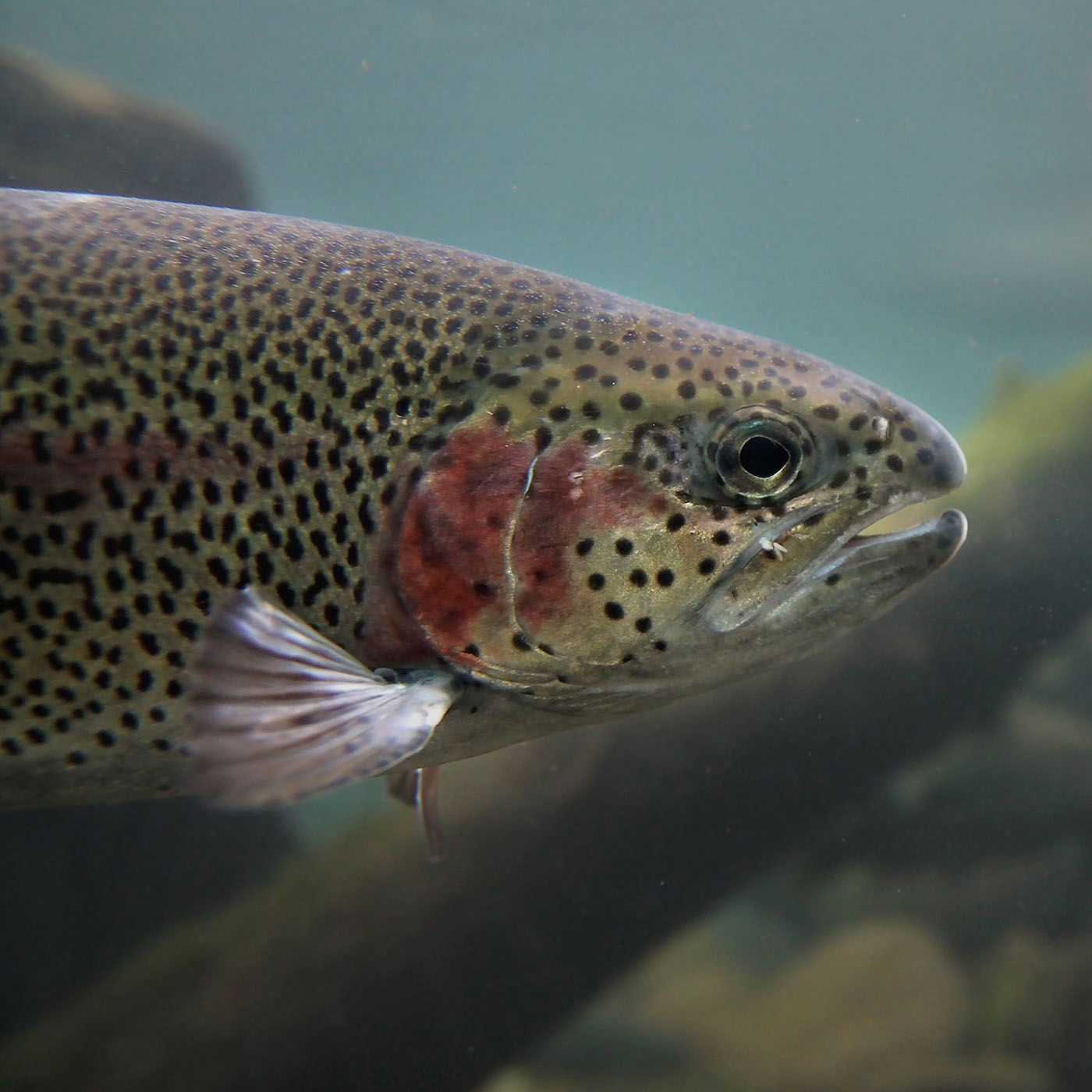
Protect Fish
Scientists confirm that fish feel pain and suffer. Protect these sensitive beings by choosing plant-based alternatives to animal food products.

